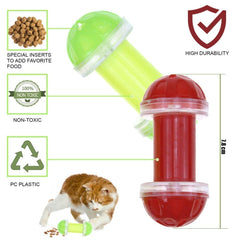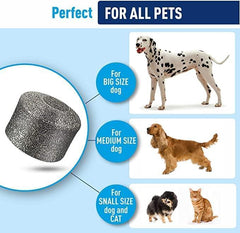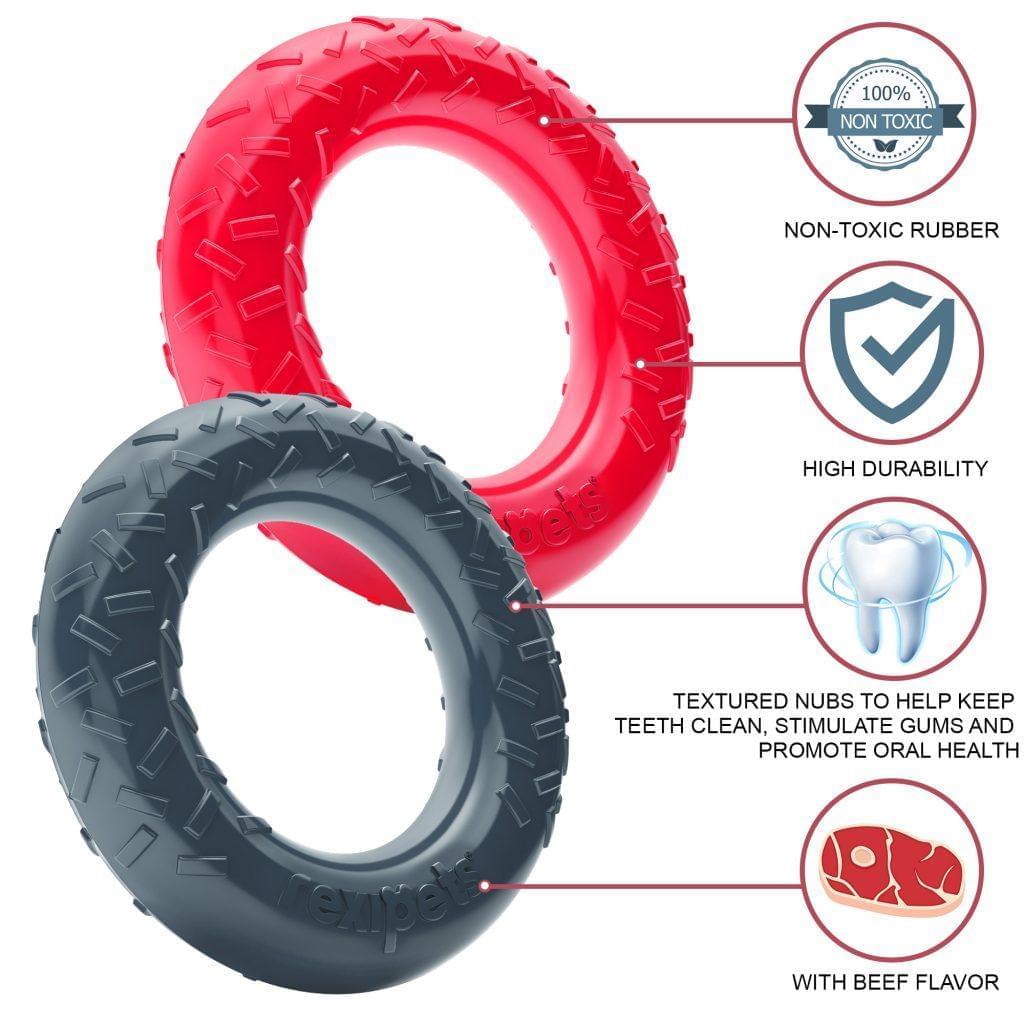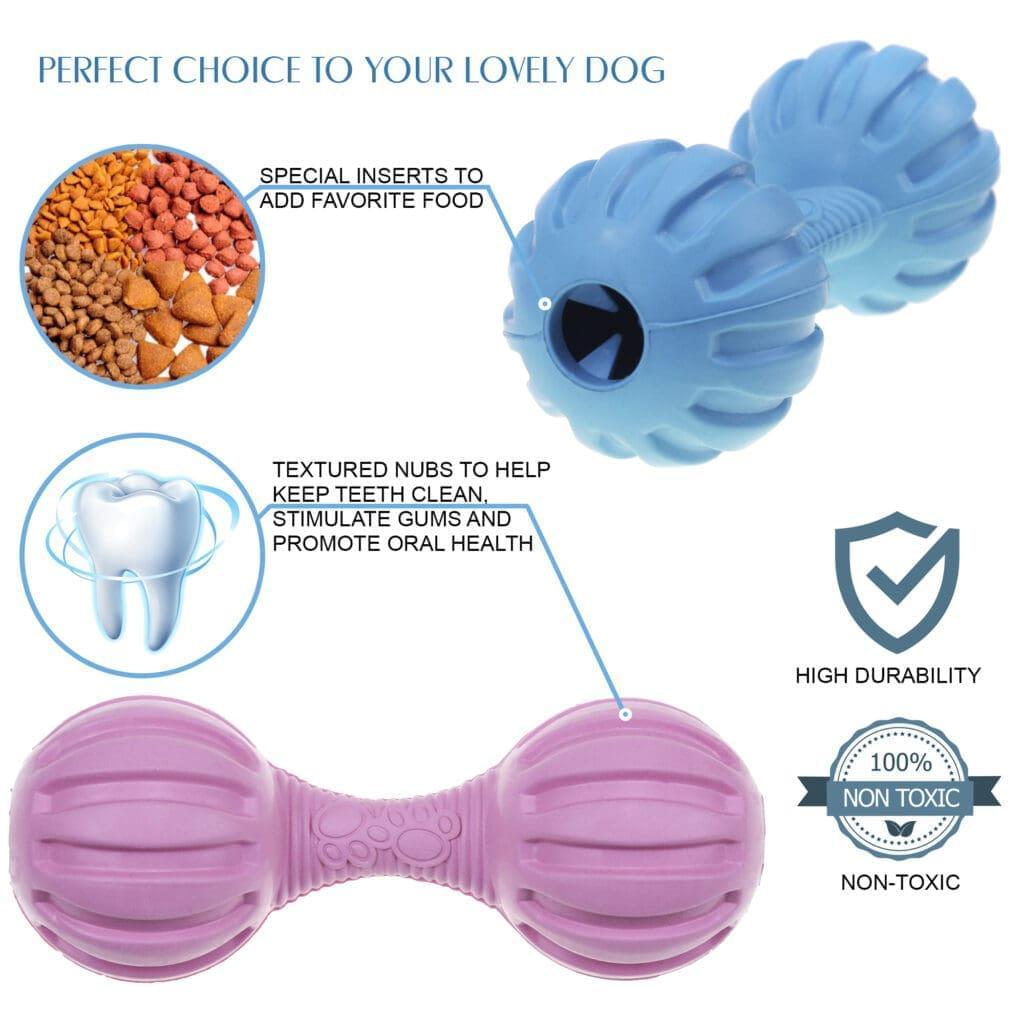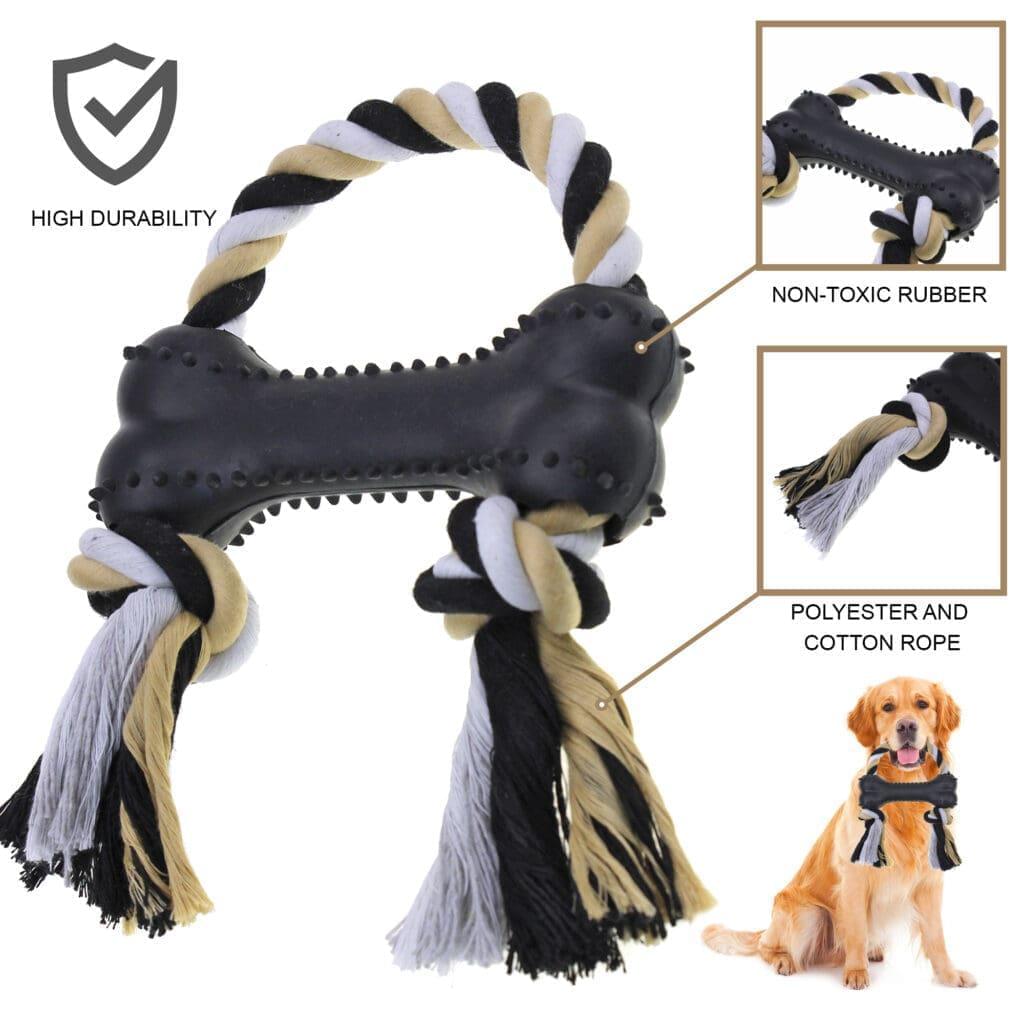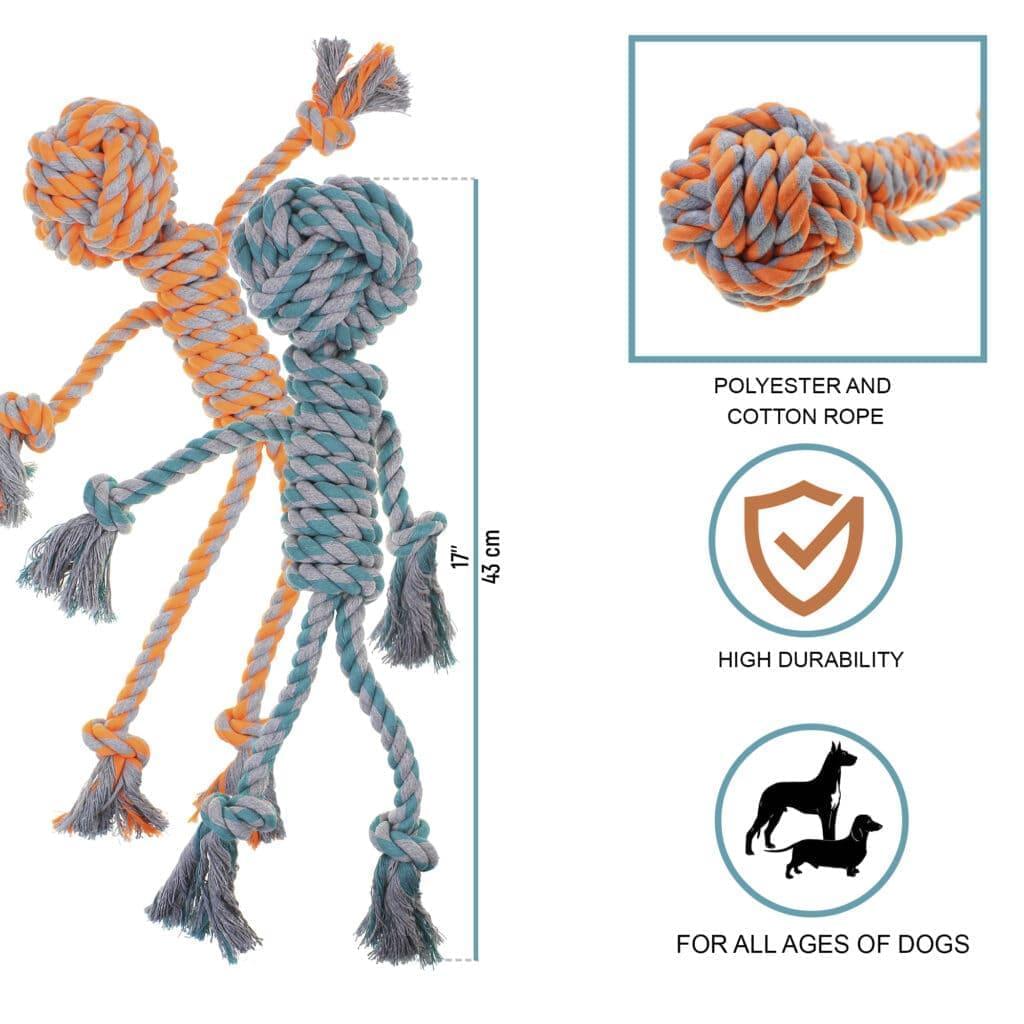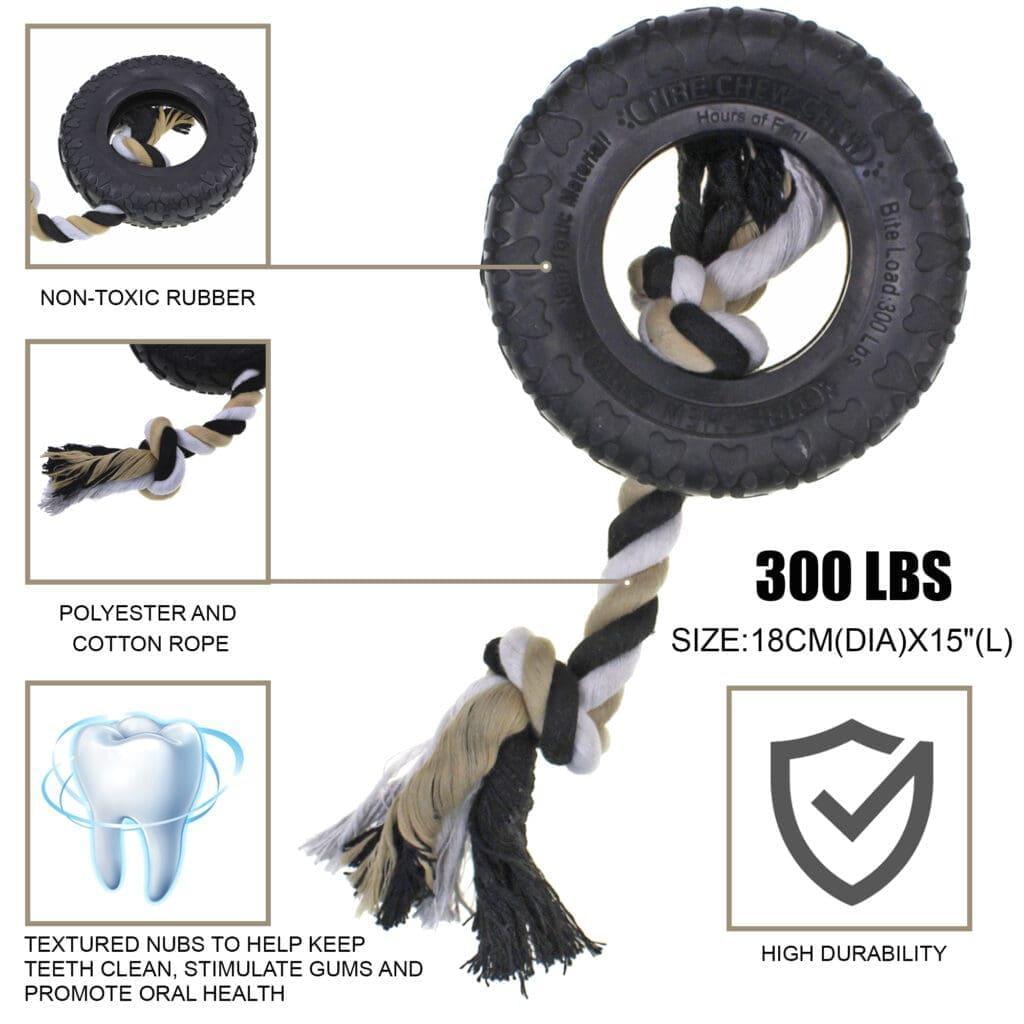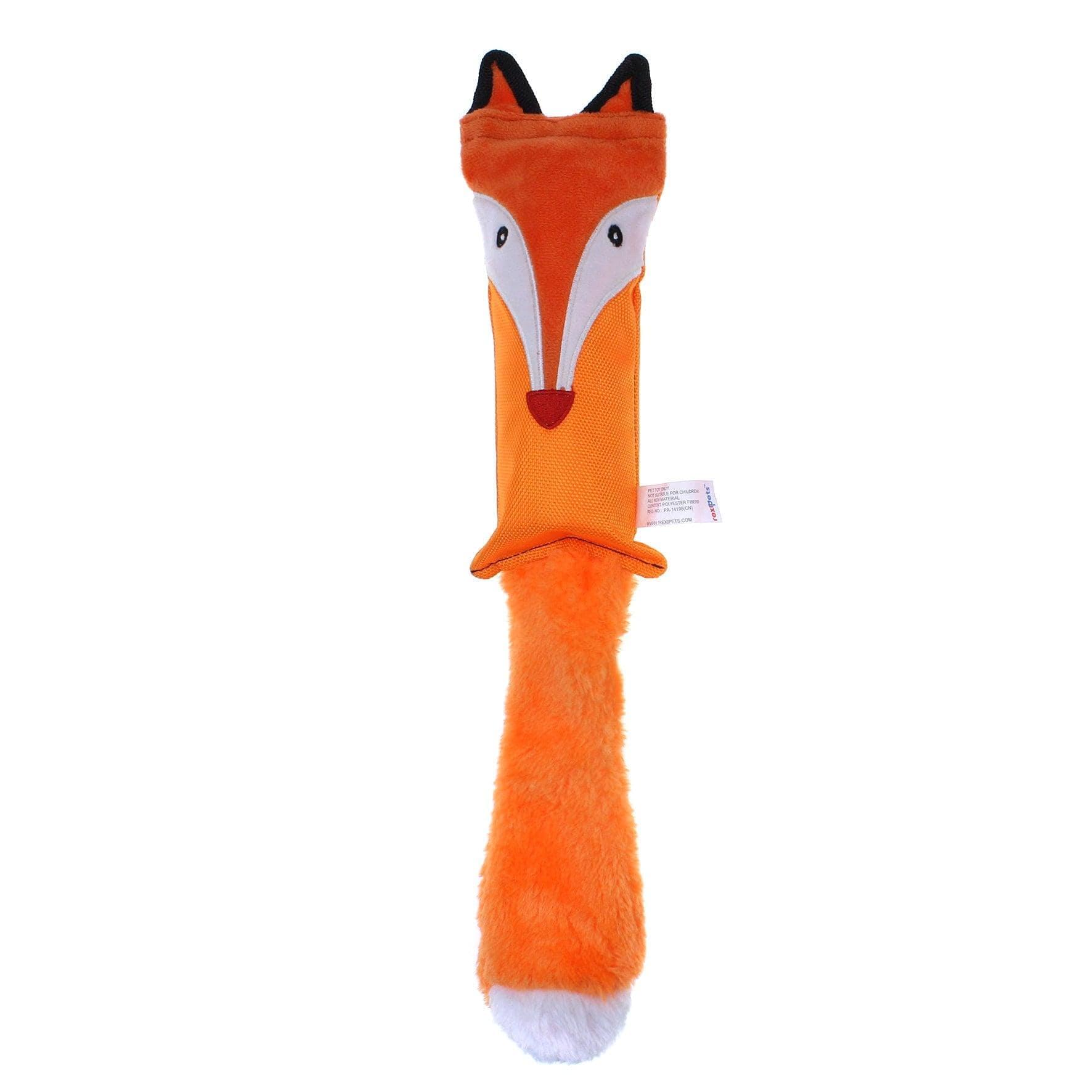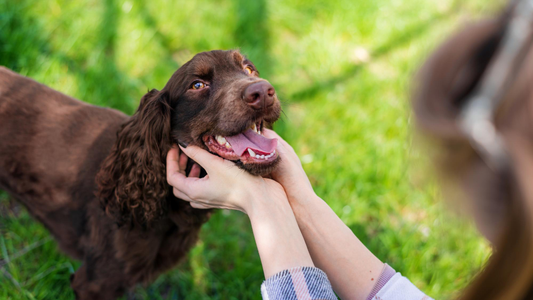
Is your furry friend shedding pounds?
Unexplained weight loss in dogs may be due to various issues. Common causes include insufficient food intake, dental problems, parasites, underlying illnesses like thyroid issues or diabetes, and anxiety.
Now finding the reason behind your dog's weight loss can be challenging. So today, we'll take you through all the possible causes, signs, diseases, and treatments for weight loss in dogs.
Let's look at different reasons together and ensure your dog is on the path to pawsome health!
Dog Weight Loss Causes
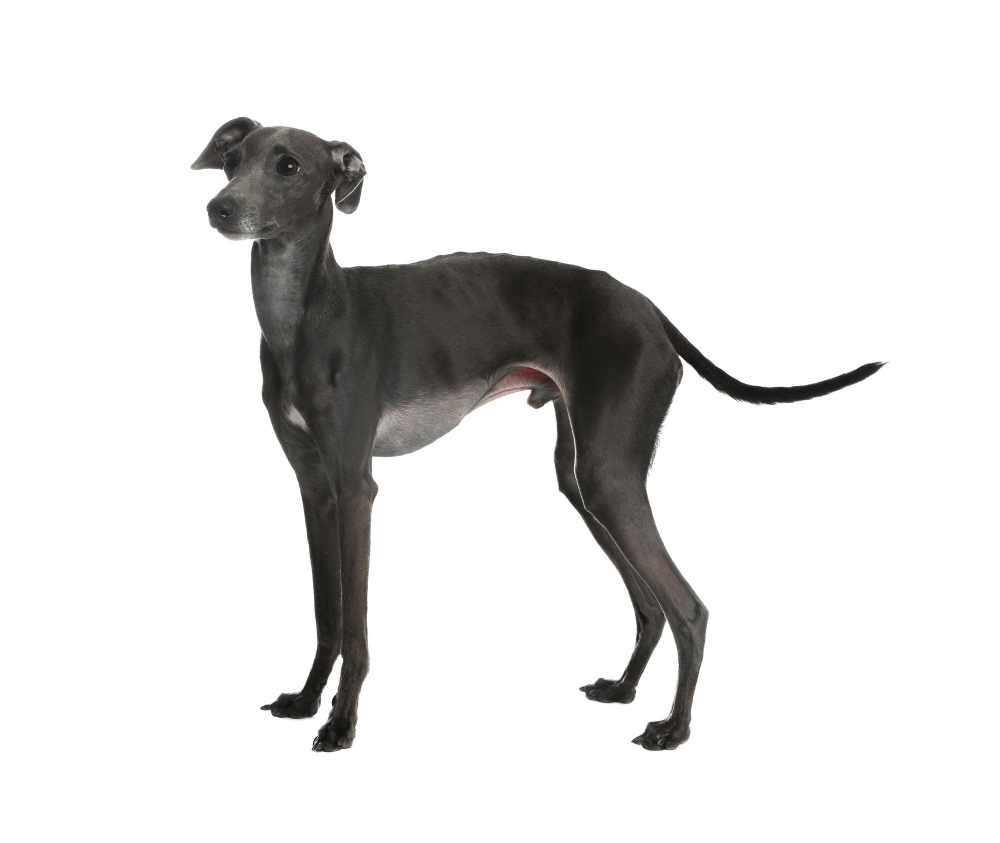
Here are some common reasons behind your dog losing weight:
- Dietary Issues: Insufficient or poor-quality food can cause weight loss in dogs.
- Dental Problems: Painful teeth or gum issues can hinder chewing, causing discomfort and a reluctance to eat.
- Parasites: Worms and other intestinal parasites can steal essential nutrients from the digestive system, impacting your dog's weight.
- Underlying Illnesses: Conditions like thyroid disorders or diabetes can contribute to weight loss.
- Anxiety or Stress: Dogs, like humans, can lose weight due to stress or anxiety. Changes in routine, new environments, or separation anxiety may be contributing factors to gaining weight, too.
- Senior Health Issues: Aging dogs may experience weight loss due to conditions like kidney failure, heart disease, or cancer.
- Infections: Illnesses, such as food allergies or chronic diseases, such as bacterial and viral infections, can also lead to rapid weight loss.
- Excessive Exercise: While exercise is vital, excessive workouts without an increase in food intake can result in unexpected weight loss in adult dogs, too.
Signs of Dog Losing Weight

You can check for these signs in your dog:
-
Visible Ribcage
One noticeable sign of weight loss is the increased visibility of your dog's ribcage. If you can easily see or feel the dog's ribs without excessive pressure, it may indicate body fat loss.
-
Reduced Muscle Mass
Weight loss in dogs can lead to decreased muscle mass. This might be evident in a loss of overall muscle tone, particularly noticeable in the hindquarters and around the spine.
-
Prominent Spine and Hips
A dog that is losing weight may have more pronounced spine and hip bones. Run your hands along your dog's back. If the spine feels sharp or the hip bones are overly prominent, it suggests a decrease in the body or abnormal weight loss.
-
Loose Skin
As dogs lose weight rapidly, their skin may appear loose or saggy. This is especially noticeable around the neck, creating a visible excess of skin that wasn't present when the dog was at a healthier weight.
-
Changes in Appetite
A sudden decrease in a dog's appetite or a reluctance to take more calories to eat can be an early indicator of weight loss. Conversely, increasing food consumption without corresponding weight gain may also signal underlying issues.
-
Lethargy
Weight loss can contribute to a lack of energy and overall lethargy in older dogs, too. If your once-active pup is now consistently low on energy or seems less interested in play, it could be a sign of underlying health problems.
-
Dull or Dry Coat
A healthy dog typically has a shiny, smooth coat. Weight loss may lead to a dull, dry, or brittle coat. Changes in coat texture or excessive shedding can be indicative of nutritional deficiencies and liver disease.
-
Behavioral Changes
Dogs experiencing weight loss may display changes in behavior. This can include increased irritability, restlessness, or other signs of discomfort, such as whining or walking. Observing and understanding your dog's behavior and normal body weight is crucial in identifying potential health issues.
-
Vomiting and Diarrhea
Persistent gastrointestinal issues, such as vomiting and diarrhea, can contribute to your dog's weight loss, too. If your dog is experiencing digestive problems alongside weight loss, it warrants prompt veterinary attention.
-
Foul Breath or Odor
Dental problems, most chronic diseases, which can be linked to weight loss, may manifest as bad breath or an unpleasant odor. Regular dental check-ups are essential to maintain oral health and prevent severe dental disease and associated weight loss.
Common Diseases That Cause Weight Loss in Dogs
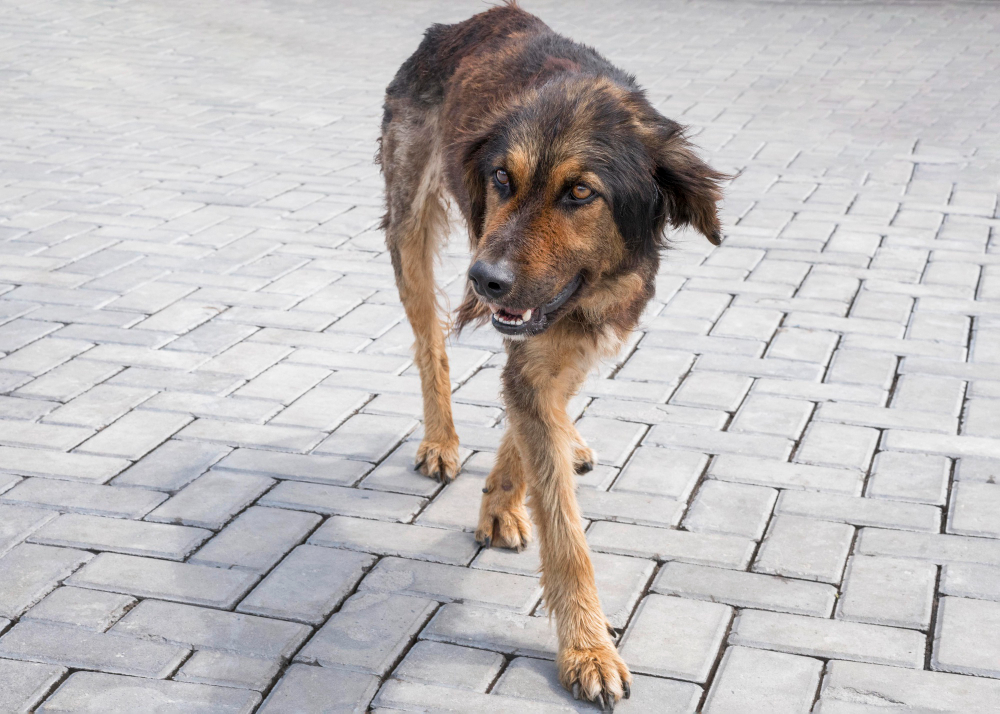
Here are some diseases that cause unexplained weight loss and poor appetite in dogs:
-
Diabetes Mellitus
Diabetes in dogs is a metabolic disorder where the body can't regulate blood sugar properly. This can lead to sudden weight loss as the cells are starved of energy despite increased blood sugar levels.
Dogs with diabetes often show signs like excessive thirst, frequent urination, and changes in appetite. Weight loss usually occurs as the body breaks down stored fat and muscle for energy. It's crucial to monitor your dog's behavior, especially if they show these symptoms, and consult a vet for proper diagnosis and management.
Managing diabetes typically involves insulin injections, dietary adjustments, and regular monitoring.
-
Hyperthyroidism
Hyperthyroidism is an over-productive thyroid condition where the thyroid gland produces excess thyroid hormones.
In dogs, this can result in weight loss due to an accelerated metabolism. Dogs with hyperthyroidism may exhibit increased restlessness, excessive panting, and an elevated heart rate. Weight loss occurs despite a dog's well-being and the owner's seemingly normal or increased appetite.
A vet can diagnose hyperthyroidism through blood tests and may recommend medication or other treatments to regulate thyroid hormone levels. Regular checking and adjustments to the treatment plan are crucial to manage this condition effectively.
-
Chronic Kidney Disease (CKD)
Chronic Kidney Disease (CKD) is a progressive health condition. This condition damages the kidneys' ability to filter waste and regulate fluids. Dogs with CKD may experience weight loss due to a combination of factors.
Reduced appetite, nausea, and increased metabolic demands on the body contribute to gradually losing body weight. Symptoms also include increased thirst, changes in urination patterns, and lethargy.
Treatment involves dietary modifications, medication, and supportive care to manage CKD and slow its progression. Early detection through regular veterinary check-ups is vital for effective management.
-
Cancer
Cancer in dogs can affect their health in various forms, leading to weight loss. Tumors can interfere with normal bodily functions, disrupt nutrient absorption, and cause a decrease in appetite. Cancer-related weight loss is often accompanied by other symptoms such as lethargy, changes in behavior, and visible lumps or masses.
Diagnosis involves thorough veterinary examinations, imaging, and sometimes biopsies. Treatment options can be changed according to the type and severity of cancer and may include surgery, chemotherapy, or other specialized therapies. Palliative care may also be considered to enhance the dog's ability and quality of life.
-
Inflammatory Bowel Disease (IBD)
Inflammatory Bowel Disease (IBD) is a chronic digestive and intestinal tract inflammation in dogs. Weight loss in dogs with IBD results from poor nutrient absorption, chronic diarrhea, vomiting, and decreased appetite.
Common symptoms include abdominal discomfort, flatulence, and changes in stool consistency. A vet may diagnose IBD through clinical signs, blood tests, and imaging studies. Treatment involves dietary modifications, medications to control inflammation, and sometimes antibiotics.
Regular veterinary follow-ups are essential to monitor your dog's response to treatment and adjust the management plan as needed.
How to Treat Weight Loss in Dogs?
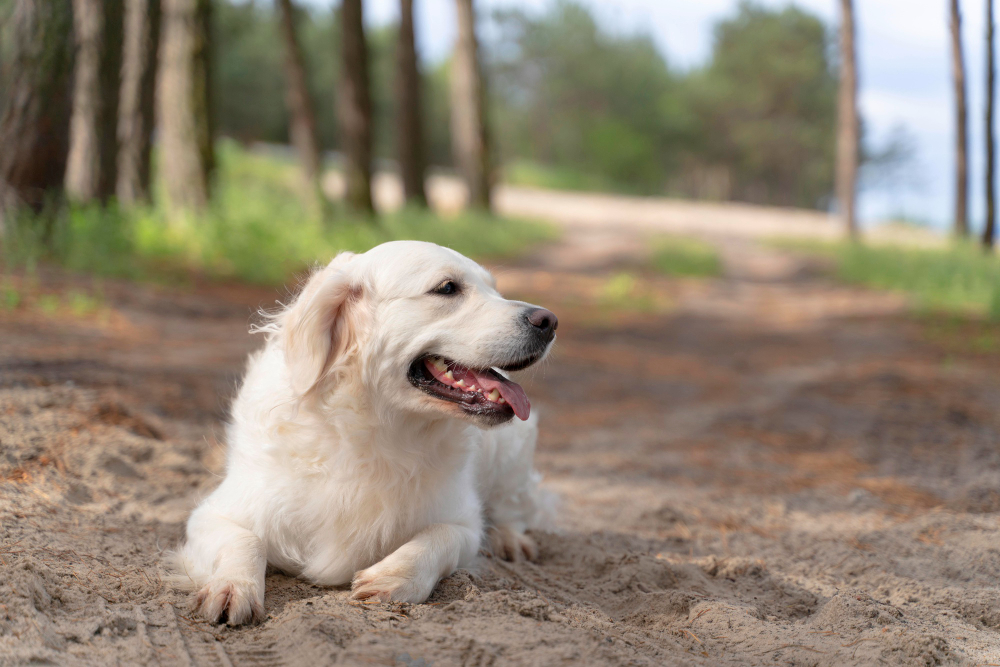
Treating dog weight loss involves identifying the underlying cause and implementing targeted interventions. Here's a general overview:
-
Consult a Veterinarian
Schedule a veterinary visit to determine the cause of your dog's weight loss. The vet will thoroughly examine your dog, run diagnostic tests, and discuss its medical history.
-
Nutritional Assessment
Ensure your dog is on a balanced and nutritious diet. Your vet may recommend a specific diet tailored to your dog's needs, considering factors like age, breed, and any underlying health conditions.
-
Parasite Control
Deworm your dog regularly to eliminate internal intestinal parasites contributing to weight loss. Your vet can recommend appropriate deworming schedules and medications.
-
Dental Care
Address dental issues that might hinder eating. Regular dental check-ups, professional cleanings, and providing dental treats or dog toys can contribute to better oral health.
-
Manage Underlying Health Conditions
If the weight loss is due to an unexplained medical condition such as diabetes, hyperthyroidism, or kidney or heart disease, follow your vet's recommended treatment plan. This may include medications, dietary adjustments, or other targeted therapies.
" -
Behavioral Considerations
If stress or anxiety is a factor, identify and address the underlying causes. Changes in the environment, routines, or providing mental stimulation can help reduce stress-related weight loss.
-
Regular Exercise

Ensure your dog gets an appropriate amount of exercise. Regular physical activity improves overall health and also stimulates appetite. Adjust the exercise routine according to your dog's age, breed, and health status.
-
Monitor Food Intake
Observe your dog's food intake. If appetite changes, monitor eating habits and consult your vet if necessary. Avoid excessive treats, chew food, or table scraps that may contribute to weight loss.
-
Weight Gain Supplements
Sometimes, your vet may recommend weight gain supplements to boost calorie intake. These can include high-calorie dog foods, nutritional supplements, or specific dietary additives.
-
Follow-up Veterinary Care
Regular follow-up appointments with your vet are crucial to monitor your dog's progress and make any necessary adjustments to the treatment plan. This is especially important if your dog is undergoing treatment for a chronic condition.
Final Words!

Addressing dog weight loss involves a comprehensive approach, including veterinary consultation, nutritional adjustments, parasite control, and managing underlying health issues.
Regular monitoring and follow-ups ensure a tailored and effective plan. Prioritize your furry friend's well-being, and consult your vet for personalized guidance on their journey to a healthier weight.
FAQs
Why is my dog losing weight but still eating?
Weight loss despite a regular appetite can indicate underlying health issues like dental problems, parasites, or problems in a dog's digestive system. Consult your vet for a thorough examination.
What happens if a dog loses weight too fast?
If your dog is losing weight that is sudden and unexplained it can lead to muscle wasting, nutritional deficiencies, and strain on vital organs. It may indicate an underlying health problem requiring immediate veterinary attention. Monitor your dog's symptoms and visit the vet for help.
Why is my dog losing weight rapidly and drinking lots of water?
Excessive thirst and weight loss can be signs of diabetes, kidney or liver disease, or hormonal imbalances. Prompt vet evaluation is essential for accurate diagnosis and appropriate treatment.




